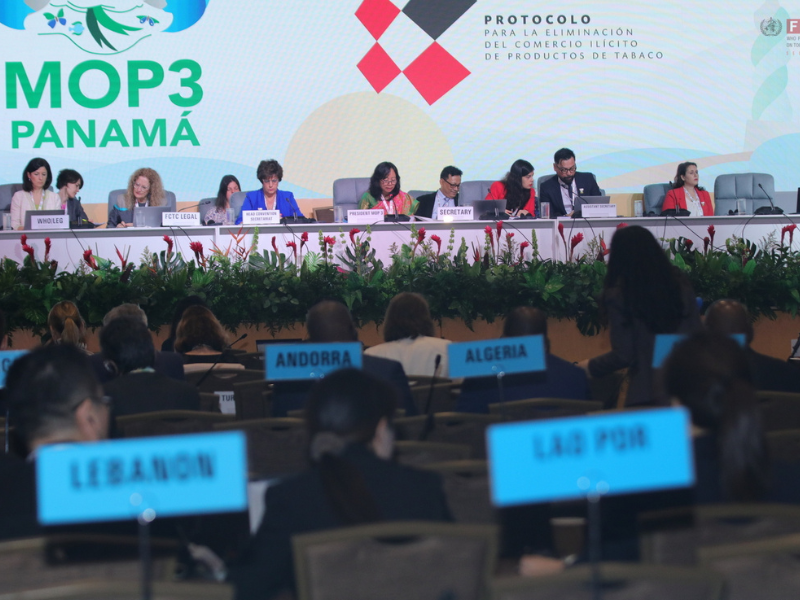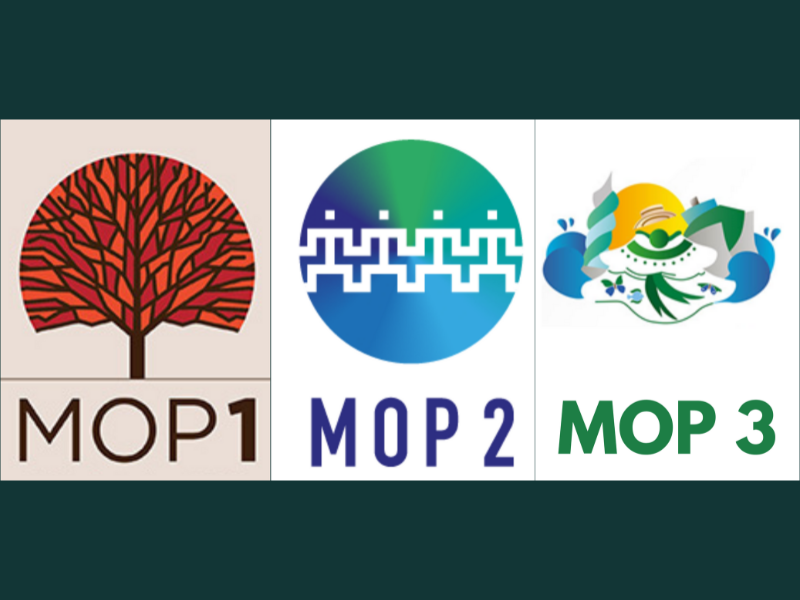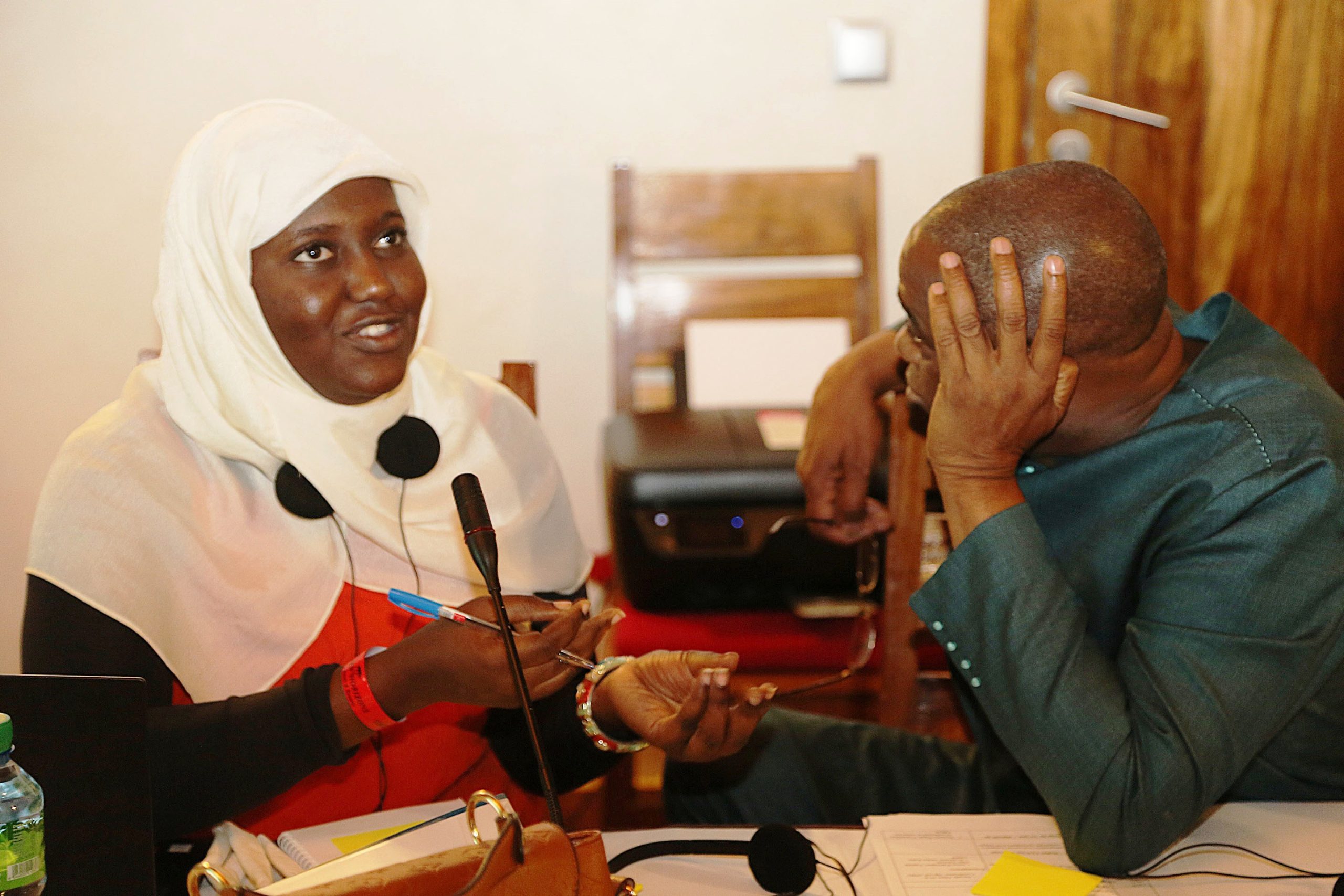This opinion piece (Link to article on Devex) was published on March 10, 2020 by Devex Global Views and sponsored by Cancer Research UK.
By Sara Rose Taylor

An antismoking public health poster at a hospital in Nuku’alofa, Tonga. Photo by: Connor Ashleigh / AusAID / CC BY
Implementation of the FCTC has so far been uneven across parties and across articles in the convention, and the number of annual deaths from tobacco-related diseases continues to increase. This is why the 181 parties bound by the FCTC agreed in 2018 to a new Global Strategy to Accelerate Tobacco Control, which highlights areas that need addressing and the policy measures that have a quantifiable impact.
The strategy can help move the needle on sustainable development by accelerating action on tobacco control, strengthening the implementation of the FCTC, and contributing to the achievement of Sustainable Development Goal 3 on improving health and well-being, including but not limited to target 3.a: strengthening the implementation of WHO’s FCTC in all countries, as appropriate.
Achieving this target, and unlocking the potential of tobacco control for development, requires global partnerships and collaboration across sectors. In fact, SDG 3.a and the strategy both call on the global community to accelerate progress on tobacco control.
WHAT WORKS AND WHAT HOLDS US BACK
For starters, we need evidence-based discussions about FCTC implementation and how to tackle barriers to implementation. This is central to the strategy and, indeed, to successful tobacco control. These discussions need to be held across global health and development communities; working together and learning from each other will facilitate necessary progress.
Second, implementation of key tobacco control measures should be centered on those included in the strategy, such as enacting tobacco taxes and smoke-free spaces. A 10% increase in tobacco product prices yields a 5% decrease in consumption across LMICs, and the best way for governments to affect prices is to impose taxes. Revenue from these taxes can then support other tobacco control programs. Focusing on the key policy priorities listed in the strategy will build up the momentum necessary to address the tobacco epidemic.
Third, governments must urgently translate global commitments into national action. Many barriers to in-country FCTC implementation still exist, but there are solutions. For example, while insufficient access to resources is a commonly cited challenge, taxation — as a source of funding — represents a critical solution central to tobacco control that is vastly underused. Most countries fall below WHO’s tobacco taxation recommendation of at least 70% of retail price.
Official development assistance would also make a significant difference in addressing the funding gap, which stood at $27.4 billion in 2018. This is far less than the global economic cost of smoking-attributable diseases, which totals $1.4 trillion. Roughly 40% of this economic burden occurs in LMICs. Development agencies in high-income countries should consider tobacco control as a pathway toward sustainable economic development globally.
Other significant barriers include a lack of political will, low policy coherence, and tobacco industry interference. Recognizing the need to address the many barriers to national-level tobacco control action, the strategy includes an objective to support and encourage parties to the FCTC in its efforts to overcome country-level challenges, including a specific objective on protecting public health policy from interference by the tobacco industry.
What’s next?
Next steps in tobacco control for development need to include harnessing the transformative potential of the strategy in the lead-up to the ninth session of the Conference of the Parties. Some 181 parties, covering more than 90% of the world’s population, will convene in November 2020 in The Hague, Netherlands, to review FCTC implementation in light of the strategy’s guidance. Many LMICs still need significant support, including financial and technical support. This deserves to be recognized and addressed in November.
Beyond the upcoming Conference of the Parties, there is a great need to break down silos and encourage dialogue across the global health and development communities. Despite its direct impact on sustainable development across all facets of the SDGs, tobacco control is predominantly addressed in the global health community and less so in the development community. Yet, the WHO FCTC and the SDGs are mutually reinforcing and complementary.
By working across issue areas, new approaches and innovative solutions will come to light. This could mean bringing development experts into FCTC conversations, addressing tobacco control at development events, and having development agencies in high-income countries fund tobacco control activities to boost sustainable development in LMICs.
The world cannot afford to ignore the negative impacts of tobacco consumption. We can make significant progress on sustainable development through the Global Strategy to Accelerate Tobacco Control and deliver a healthier population, economy, and planet.
Find out more about Cancer Research UK’s International Cancer Prevention Programme.




